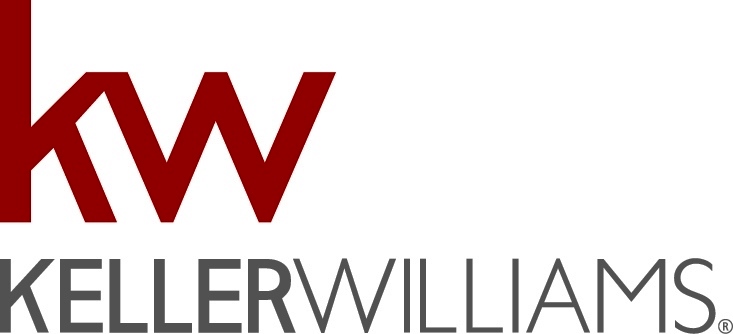|
Q. What is a Foreclosure? |
|
A. Foreclosure is the legal and professional proceeding in which a mortgagee, or other lienholder, usually a lender, obtains a court ordered termination of a mortgagor's equitable right of redemption. Usually a lender obtains a security interest from a borrower who mortgages or pledges an asset like a house to secure the loan. If the borrower defaults and the lender tries to repossess the property, courts of equity can grant the borrower the equitable right of redemption if the borrower repays the debt. While this equitable right exists, the lender cannot be sure that it can successfully repossess the property, thus the lender seeks to foreclose the equitable right of redemption. Other lienholders can also foreclose the owner's right of redemption for other debts, such as for overdue taxes, unpaid contractors' bills or overdue HOA dues or assessments.
|
Q. What does "REO" stand for? Is "RELO" the same? |
A. It means "Real Estate Owned". This means property that banks have foreclosed on and is for sale to the general public. A property termed a "RELO", short for relocation, is property that is owned by a third party...... a relocation company. The owner has been transferred to a new location and the employer has made arrangements to buy the property from them. In some instances, a potential buyer may get a good deal due to the seller's circumstances and the willingness of the relocation company to sell the property quickly.
|
Q. What's the difference between a Short Sale and a REO (bank owned)? |
A. A short sale occurs prior to the bank foreclosing on a defaulting seller. Should the seller or the bank not receive an offer that's acceptable, the bank will foreclose on the seller and sell the home at a public auction. Should no one outbid the bank for what is owed, the bank purchases the home back and that property becomes an REO
|
Q. What is a Short Sale? |
A. According to the North Carolina Association of Realtors®, a short sale occurs when the purchase price is or may be insufficient to enable seller to pay the costs of sale, which include but are not limited to the Seller’s closing costs and payment in full of all loans or debts secured by deeds of trust on the Property due and owing to one or more lender(s) and/or other lienholders. The seller also does not have sufficient liquid assets to pay any deficiencies. The lienholders agree to release or discharge their liens upon payment of an amount less than the amount owed, with or without the Seller being released from any further liability
|
Q. Who qualifies for a Short Sale? |
A. As a homeowner, you must be either in default on your mortgage or in imminent danger of default. This must be as a result of a proven hardship that is preventing you from paying your mortgage. Examples of hardships are:
- Loss of a job
- Reduction in pay / overtime / loss of bonus
- Medical bills
- Divorce
- Death of a spouse or loved one
- Overwhelming Debt
- Incarceration
|
Q. How do you know if you're approved for a Short Sale? |
A. There are a number of factors that go into approving one for a short sale, one of which is an offer. Only once an offer is received and the short sale packet is sent to the bank will you know if the bank has accepted your short sale proposal.
| Q. Does it cost anything for a Short Sale? |
A. In most cases, the bank covers all of the fees for the short sale including real estate commissions and fees generated by the closing attorney and / or 3rd party negotiator. You will not receive any equity from the short sale of your property Q. What are the new programs that the President just signed all about? I need help with my mortgage?
A. The latest Homeowner Affordability and Stability Plan signed March 09, enables loan servicers to begin modifications of eligible mortgages. You may be eligible to refinance or modify their loans to a payment that is affordable now and into the future. To learn if you qualify, please see the details of the different options available
http://www.financialstability.gov/docs/borrower_qa.pdf
http://www.financialstability.gov/makinghomeaffordable/
http://www.treas.gov/press/releases/reports/guidelines_summary.pdf
Q. What is a "HUD Home"?
A. A HUD Home is a property that was previously financed with an FHA insured mortgage and where the owner has defaulted on the loan. The lender, then, forecloses on the home. FHA pays the lender what is owed; and the lender transfers ownership of the home to FHA/HUD. Then, HUD sells it at market value.
|
Q. Who can buy a HUD Home? |
A. Anyone who has the cash or can qualify for a mortgage can buy a HUD Home.
| Q. Is it true I can get a HUD Home for a dollar? |
A. No. HUD sells homes at market value - that means that the price is set based on the price of similar homes sold in the area.
| Q. If the HUD Home needs repairs, will HUD make them? |
A. HUD Homes are sold "as-is," without warranty. That means that HUD will not pay to correct any problems. Buyers are encouraged to get the home professionally inspected.
Houses built before 1977 may have lead based paint, which can cause harm to your family; so be sure to read about this hazard and about what you would need to do to correct it.
|
Q. How do I buy a HUD home? |
A. HUD Homes are sold through Participating Real Estate Agents.
Start by finding a HUD participating real estate agent. Your real estate agent must submit your bid for you. The real estate agent's commissions are usually paid by HUD.
|
Q. How can I get a loan to buy a HUD Home? |
A. HUD does not make loans directly. You can contact a HUD approved lender, who will take you through the steps and actually make the loan.
|
Q. Can I buy a HUD Home as an investment? |
A. Most HUD Homes are initially offered on a priority basis to owner occupant purchasers (people who are buying the home as their primary residence). Following the priority period, unsold properties are then available to all buyers, including investors.
|
Q. Are there any programs for Nonprofits and Government Agencies? |
A. HUD has a special sales program under which approved nonprofit organizations and government agencies may purchase properties at discounted prices for use in local housing or homeless programs. Click here for more information on this program.
| Q. Are there any special programs for Officers and Teachers? |
A. HUD has a special sales program under which approved Officers and Teachers (as defined by HUD) may purchase properties at discounted prices in revitalization areas. Click here for more information on this program.
| Q. When should I do a walk through inspection? |
A. All purchasers are strongly encouraged to perform a walk through inspection at or near the date of your contract acceptance and, again, immediately PRIOR to closing. If a purchaser discovers a property condition that did not exist at the time of sale they must immediately notify HUD's property manager, HMBI, of the damage. The purchaser or agent should complete the Property Damage Report and fax it to the appropriate fax number listed on the form. Reporting the damage does not guarantee the correction of the problem that has been discovered. The lack of written documentation describing property condition at contract acceptance, however, will preclude consideration for repairs or price adjustments in the event of subsequent damage. Each case will be looked at independently and a determination will be made as to whether the damage will be repaired (or not repaired) or, under some circumstances, credits given at closing. The buyer assumes full responsibility for the property and its condition on the date of closing. Neither HUD nor HMBI assumes any responsibility, and will make no settlement for damages reported to HUD after the close of escrow. (See item #13.E of HUD Sales Contract). Inspections are for the benefit of the buyer. Under no circumstances shall this advice be construed as a warranty by HUD or HMBI as to the condition of the properties.
| Q. What will my down payment be if I bid over the asking price? |
A. Be advised that the purchaser must pay cash for any overbid in excess of the sales price when using FHA financing. The purchaser is still required to furnish the 3% down in addition to the amount overbid. For example, if a property is listed at $100,000 and the purchaser bids $102,000, he/she is required to pay the 3% down ($3,000) plus the overbid value ($2,000) for a total FHA down payment of $5,000. When using conventional financing, the lender will calculate the required down payment.
| Q. What is the Section 203k Program? |
A. The Section 203k program is a program for rehabilitation and repair of single family properties. The program allows the borrower to get just one mortgage loan, at a long-term fixed or adjustable rate, to finance or refinance both the acquisition an the rehabilitation.
| Q. Should a Walk-Through Inspection be performed prior to closing? |
A: All purchasers and agents are strongly encouraged to perform a walk through inspection PRIOR to the closing. If a purchaser discovers a property condition that did not exist at the time of sale, they must immediately notify HMBI of the damage. Reporting of the damage does not guarantee the correction of the problem that has been discovered. Each case will be looked at and a determination will be made as to whether repairs will be made or whether the buyer will be given the opportunity to cancel the sale. The buyer assumes full responsibility for the property and its condition on the date of closing. HUD and HMBI assume no responsibility, and will make no settlement, for damages reported after the closing. (See item #13.E of HUD Sales Contract)
Q. Will HUD provide termite treatment or repairs if required by the lender on a conventional loan?
A: No. HUD will only pay for termite treatment or repairs if required by the lender on an FHA loan. If, however, the buyer elects to change financing from FHA to a conventional or cash product, HUD will not pay for the termite work. If the buyer should switch financing to anything other than FHA, the buyer will have to reimburse HUD the costs of those repairs.
Where can I find HUD Homes for sale?
While there are lots of sites popping up to try to sell you this information, there are only two places you need to go:
- For homes in North and South Carolina, visit
- http://www.hudhomestore.com which is a free site to search for HUD homes. It is the offical listing of HUD homes and is updated every Friday with new listings
-
For homes in other states, visit http://www.hud.gov.
Where can I find Foreclosures, Short Sales, "REO" & "RELO" homes for sale?
Your REALTOR may also have access to the Foreclosure & HUD listings (I know I do) and I make them available on my website as well for free. CALL ME!!



